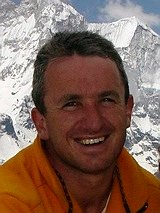The Truth, the Whole Truth, and Nothing but the Truth: A Pragmatic Guide to Assessing Empirical Evaluations
An unsound claim can misdirect a field, encouraging the pursuit of unworthy ideas and the abandonment of promising ideas. An inadequate description of a claim can make it difficult to reason about the claim, for example to determine whether the claim is sound. Many practitioners will acknowledge the threat of unsound claims or inadequate descriptions of claims to their field. We believe that this situation is exacerbated and even encouraged by the lack of a systematic approach to exploring, exposing, and addressing the source of unsound claims and poor exposition. In this talk I will discus some of the challenges and pitfalls of empirical evaluation and describe a new framework designed to help individuals conduct better science and encourage a cultural shift in our research community to identify and promulgate sound claims.
My research interests center on the challenge of making software run faster and more power-efficiently on modern hardware. My primary interests include: microarchitectural support for managed languages, fast and efficient garbage collection, and the design and implementation of virtual machines. As a backdrop to this I have a longstanding interest in role of sound methodology and infrastructure in successful research innovation.
Tue 14 JunDisplayed time zone: Tijuana, Baja California change
10:30 - 12:00 | |||
10:30 25mTalk | Fighting Software Inefficiency Through Automated Bug Detection PLMW@PLDI Shan Lu University of Chicago Media Attached | ||
10:55 25mTalk | The Truth, the Whole Truth, and Nothing but the Truth: A Pragmatic Guide to Assessing Empirical Evaluations PLMW@PLDI Steve Blackburn Australian National University Media Attached | ||
11:20 25mTalk | Approximate Computing: it's better than good, it's good enough! PLMW@PLDI Michael Carbin MIT Media Attached | ||
